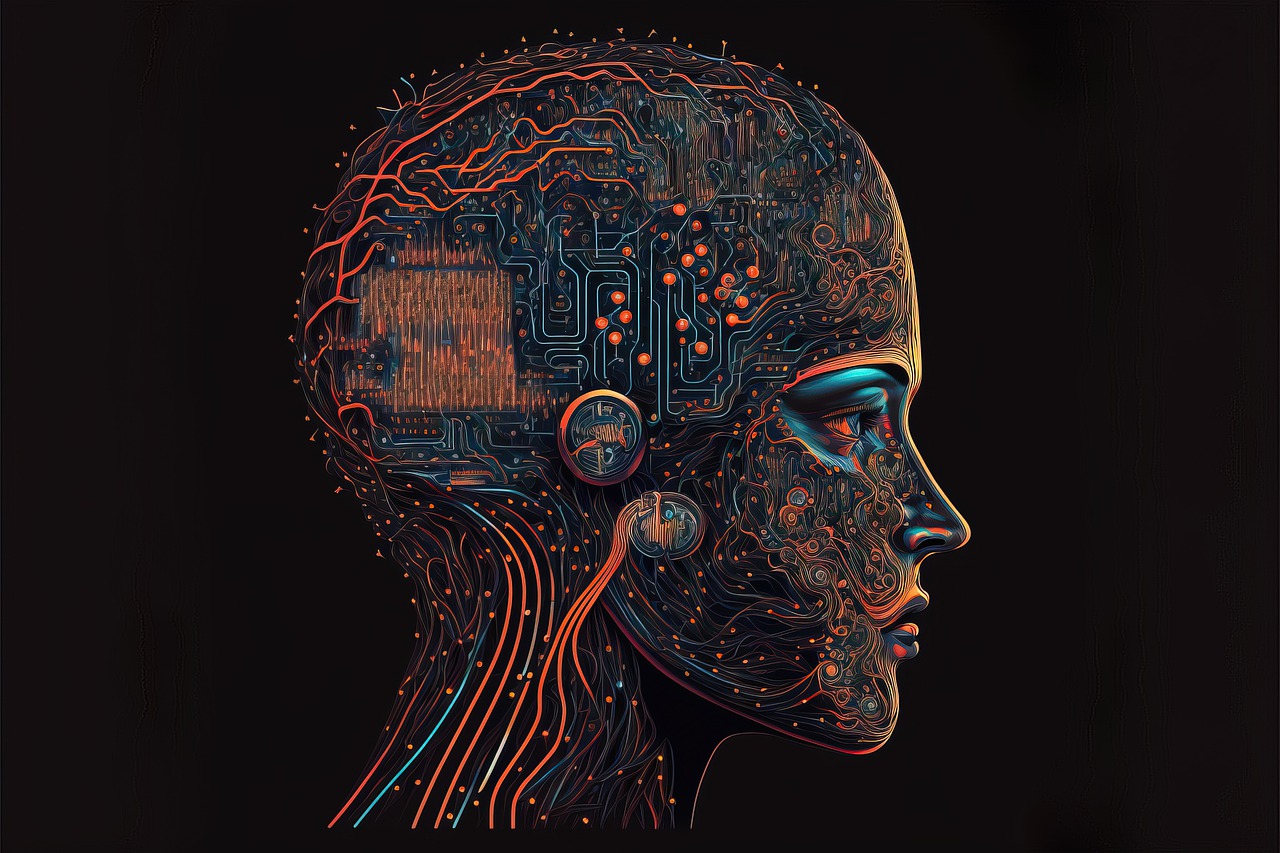Generative AI, the frontier of artificial intelligence, is revolutionising industries with its ability to create content, design products, and even generate code. For entrepreneurs, this technology presents a myriad of opportunities to create profitable businesses. Here are ten innovative business ideas leveraging generative AI:
1. AI-Generated Content Creation
Generative AI can produce high-quality written content, making it ideal for businesses in the publishing, blogging, and marketing sectors. Entrepreneurs can offer services such as article writing, social media content creation, and personalised email campaigns. AI-driven content creation tools like GPT-4 can draft engaging and SEO-optimised articles, reducing the need for large content teams. According to a 2023 report by MarketsandMarkets, the AI in content creation market is expected to grow from $1.3 billion in 2021 to $10.1 billion by 2026, highlighting the vast potential in this sector.
Moreover, businesses can leverage AI to create multilingual content, expanding their reach to global audiences. By using generative AI, companies can ensure consistency in tone and style across different languages, enhancing brand cohesion. Tools like Jasper and Writesonic have already shown impressive results in automating content creation, with some companies reporting a 40% reduction in content production costs. This efficiency enables businesses to allocate resources to other critical areas, driving overall growth.
2. Personalised Marketing Campaigns
Generative AI can analyse consumer data and generate personalised marketing strategies. Businesses can develop AI-driven platforms that create targeted ads, personalised product recommendations, and customised email campaigns. These AI systems can enhance customer engagement and increase conversion rates by delivering content tailored to individual preferences. According to a study by Evergage, 88% of marketers reported a measurable improvement in business results due to personalisation, with AI playing a significant role in this transformation.
One prominent example is Amazon, which uses AI algorithms to personalise product recommendations, contributing to 35% of its total sales. Small and medium-sized enterprises (SMEs) can replicate this success by utilising generative AI for their marketing efforts. AI-driven personalisation can result in higher customer satisfaction and loyalty, as consumers are more likely to engage with content that resonates with their interests and needs. By leveraging generative AI, businesses can stay competitive in an increasingly data-driven market.
3. AI-Powered Design Services
From graphic design to fashion, generative AI can produce creative designs based on specific inputs. Entrepreneurs can offer AI-driven design services, creating logos, website layouts, marketing materials, and even clothing designs. These AI tools can streamline the design process, making it faster and more cost-effective. For instance, platforms like Canva and Adobe’s AI tools enable users to generate professional-quality designs without needing extensive design skills, democratizing access to high-quality design resources.
The fashion industry is also seeing significant disruption from AI. Companies like Stitch Fix use AI to analyse customer preferences and create personalised fashion recommendations, blending human creativity with AI efficiency. According to McKinsey, the use of AI in fashion design and retail could lead to a 10-20% increase in sales and a 20-30% reduction in manufacturing costs. Entrepreneurs entering the AI-powered design space can cater to a wide range of industries, from e-commerce to digital marketing, providing scalable and innovative design solutions.
4. Virtual Assistants and Chatbots
Generative AI can power advanced virtual assistants and chatbots capable of handling complex customer interactions. Businesses can develop AI-driven customer service platforms that provide 24/7 support, answer queries, and resolve issues efficiently. These virtual assistants can enhance customer satisfaction and reduce operational costs. According to Gartner, by 2025, 80% of customer service interactions will be handled by AI, up from 52% in 2020.
Companies like Intercom and Drift have successfully integrated AI chatbots to improve customer service, resulting in faster response times and higher customer satisfaction rates. Additionally, these AI tools can collect valuable customer data, providing insights that can inform product development and marketing strategies. Entrepreneurs can tap into this growing market by offering customised AI chatbot solutions for businesses across various sectors, from retail to finance, ensuring a seamless and efficient customer experience.
5. AI-Enhanced Software Development
Generative AI can assist in writing and debugging code, accelerating the software development process. Entrepreneurs can create AI-driven development tools that help programmers by generating code snippets, suggesting optimisations, and automating testing. These tools can significantly reduce development time and improve software quality. According to a report by Tractica, the AI software market is expected to reach $126 billion by 2025, driven by the adoption of AI in software development.
Tools like GitHub Copilot, powered by OpenAI’s Codex, have already shown how AI can assist developers by providing code suggestions and completing functions. This not only speeds up the development process but also helps in reducing errors and improving code quality. Startups can capitalise on this trend by developing AI tools tailored to specific programming languages or industries, providing developers with advanced resources to enhance their productivity and efficiency.
6. AI-Generated Art and Music
Generative AI can create unique pieces of art and music, offering a novel business opportunity in the creative industries. Entrepreneurs can develop platforms where users can generate custom artwork or music compositions. These AI-generated creations can be sold as digital assets, used in advertising, or personalised gifts. According to Deloitte, the global market for AI in the creative arts is projected to reach $2.7 billion by 2024, indicating significant growth potential.
Platforms like DeepArt and AIVA (Artificial Intelligence Virtual Artist) demonstrate the capabilities of AI in producing high-quality creative works. For instance, AIVA has composed music for film scores, video games, and commercials, showcasing the versatility of generative AI in music production. Entrepreneurs can explore various business models, such as subscription services, licensing agreements, or custom commissions, to monetise AI-generated art and music effectively.
7. Personalised Education and Training
Generative AI can tailor educational content to individual learning styles and needs. Businesses can create AI-driven educational platforms that generate customised lesson plans, quizzes, and learning materials. These platforms can cater to students’ unique requirements, making education more accessible and effective. According to Research and Markets, the global AI in education market is expected to grow from $1.1 billion in 2020 to $25.7 billion by 2030, reflecting a compound annual growth rate (CAGR) of 45.3%.
Companies like Squirrel AI and Carnegie Learning use AI to personalise education, providing adaptive learning experiences that adjust to each student’s progress and understanding. This approach has been shown to improve learning outcomes and student engagement. Entrepreneurs can develop AI-driven educational tools for various age groups and subjects, from primary education to professional training, offering scalable and personalised learning solutions that address the diverse needs of learners.
8. AI-Based Financial Services
Generative AI can analyse financial data and generate investment strategies, forecasts, and personalised financial advice. Entrepreneurs can develop AI-powered financial advisory services that help users manage their investments, savings, and expenditures. These services can provide real-time insights and optimise financial planning. According to a PwC report, AI could add $1.2 trillion in value to the global financial services industry by 2030.
Robo-advisors like Betterment and Wealthfront use AI algorithms to provide personalised investment advice and portfolio management, offering users a cost-effective alternative to traditional financial advisors. These platforms have attracted millions of users, demonstrating the demand for AI-driven financial services. Entrepreneurs can capitalise on this trend by developing AI tools that cater to specific financial needs, such as retirement planning, tax optimisation, or risk management, providing tailored solutions that enhance financial well-being.
9. AI-Driven Healthcare Solutions
Generative AI can assist in diagnosing diseases, generating treatment plans, and personalising patient care. Businesses can develop AI-driven healthcare applications that support doctors in making more accurate diagnoses, recommending personalised treatments, and monitoring patient progress. These solutions can improve healthcare outcomes and efficiency. According to Accenture, AI in healthcare could save the US healthcare economy up to $150 billion annually by 2026.
AI tools like IBM Watson Health and Google’s DeepMind have demonstrated the potential of AI in improving diagnostic accuracy and treatment planning. For example, DeepMind’s AI system has achieved a 94.5% accuracy rate in diagnosing eye diseases, outperforming human specialists. Entrepreneurs can explore opportunities in telemedicine, predictive analytics, and personalised treatment plans, developing AI-driven healthcare solutions that address critical challenges in the medical field and enhance patient care.
10. AI-Enhanced Gaming
Generative AI can create dynamic and immersive gaming experiences. Entrepreneurs can develop AI-driven games that adapt to players’ behaviours, creating unique and personalised gaming environments. These AI-enhanced games can offer richer storytelling, more complex challenges, and a more engaging user experience. According to Newzoo, the global gaming market is expected to generate $175.8 billion in 2021, with AI playing a crucial role in the industry’s growth.
Games like “AI Dungeon” have already showcased the potential of generative AI in creating interactive narratives, allowing players to experience a virtually infinite number of storylines. AI can also be used to develop adaptive learning systems within games, enhancing player retention and satisfaction. Entrepreneurs can leverage AI to create innovative gaming experiences, from procedurally generated worlds to intelligent non-player characters (NPCs), providing gamers with unprecedented levels of engagement and immersion.
Conclusion
Generative AI is a powerful tool that can transform various industries by automating and enhancing creativity, personalisation, and efficiency. For entrepreneurs, these ten business ideas represent just the beginning of what is possible with this technology. By leveraging generative AI, businesses can innovate and stay ahead in an increasingly competitive market. Whether you’re looking to create content, design products, or develop new technologies, generative AI offers a wealth of opportunities for profitability and growth. The integration of AI in these diverse sectors not only streamlines operations but also opens new avenues for personalised and high-quality services, ensuring a competitive edge in the digital era.




